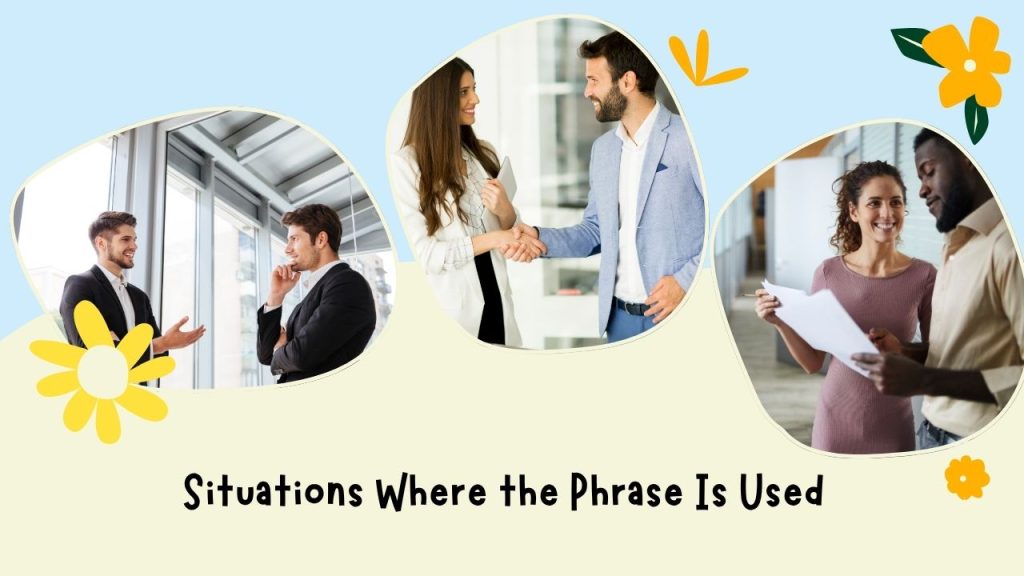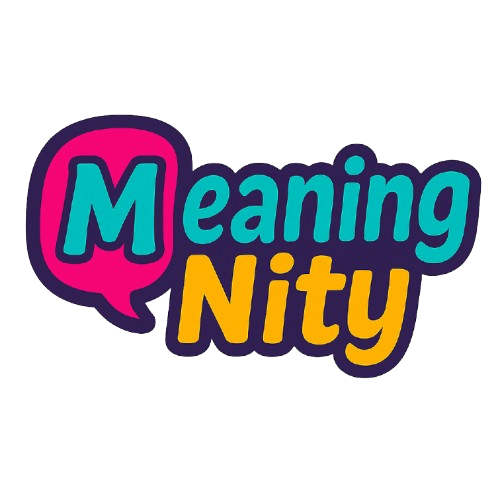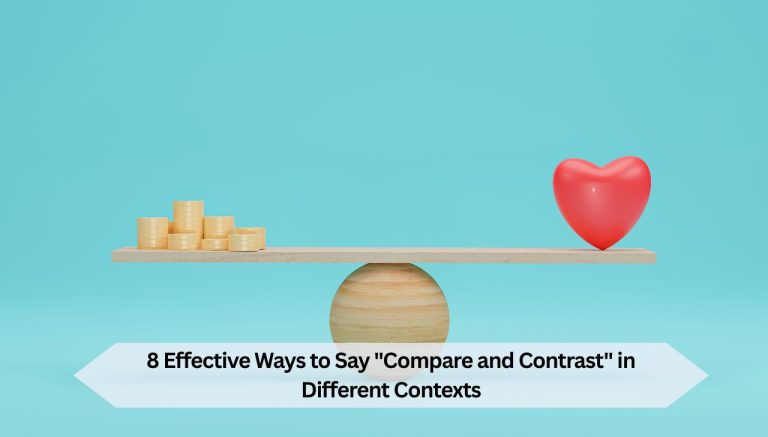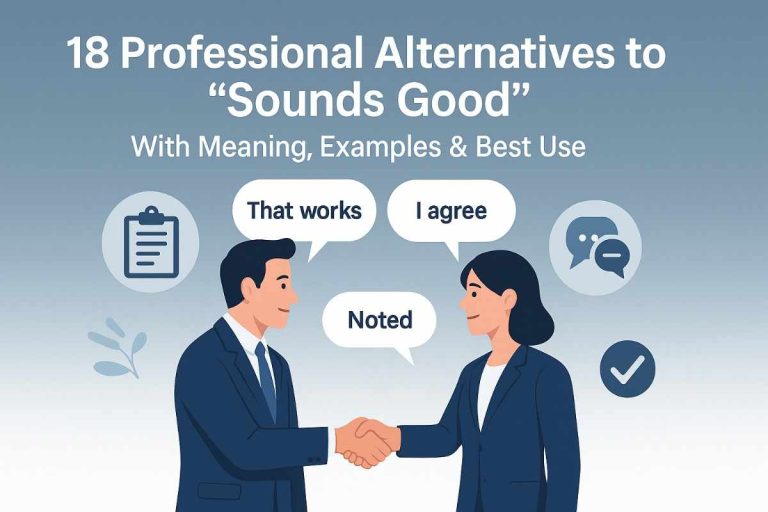25 Ways to Say “Looking Forward to Seeing You” Professionally
We say it all the time—“Looking forward to seeing you.” It’s friendly and familiar. But in a professional setting, you might want something a little more polished. Whether you’re writing a business email or speaking during a meeting, how you phrase things matters. These small details can shape how others perceive you—thoughtful, clear, and respectful.
What Does “Looking Forward to Seeing You” Really Mean?
At its core, it’s a way to express anticipation. You’re telling someone their presence matters. That you value the time you’ll spend together. It shows courtesy, connection, and readiness. But sometimes, repeating the same phrase can feel stale or too casual.
That’s why fresh alternatives help. They keep communication sharp, while still personal.
Dive Deeper : Requester vs. Requestor: Which Spelling Should You Use?

Situations Where the Phrase Is Used
You’ll often use it:
- Before a scheduled meeting
- In follow-up emails after confirming an appointment
- During event invitations or RSVPs
- In networking or sales messages
- When reconnecting with a colleague or client

Below 25 Ways to Say “Looking Forward to Seeing You” .
1. “I’m eager to meet with you.”
Example: “I’m eager to meet with you next Tuesday to discuss the project timeline.”
Best Use Case: Use this when you’re expressing enthusiasm for a scheduled meeting.
2. “I appreciate the chance to meet soon.”
Example: “I appreciate the chance to meet soon and go over your feedback.”
Best Use Case: Works well in follow-up emails or replies confirming a meeting.
3. “I’m anticipating our conversation.”
Example: “I’m anticipating our conversation on Friday about the Q3 review.”
Best Use Case: For scheduled one-on-one talks or feedback sessions.
4. “It’ll be great to connect in person.”
Example: “Thanks for making the time—It’ll be great to connect in person.”
Best Use Case: Use this when moving from virtual to in-person meetings.
5. “I’m glad we’ll have a chance to talk.”
Example: “I’m glad we’ll have a chance to talk during the workshop.”
Best Use Case: Works well when a discussion will happen during a larger event.
6. “I’m ready to continue our discussion.”
Example: “I’m ready to continue our discussion when we meet next week.”
Best Use Case: For follow-ups after an initial conversation.
7. “Looking forward to our upcoming meeting.”
Example: “Looking forward to our upcoming meeting on the strategy rollout.”
Best Use Case: Use when referring to a scheduled calendar event.
8. “It’ll be good to catch up.”
Example: “It’s been a while—it’ll be good to catch up next Monday.”
Best Use Case: For reconnecting with colleagues or long-time contacts.
9. “I welcome the opportunity to meet.”
Example: “Thank you for your time—I welcome the opportunity to meet.”
Best Use Case: When you’re being formal and expressing gratitude.
10. “Excited about our time together.”
Example: “Excited about our time together at the off-site next week.”
Best Use Case: Good for team-building events or leadership retreats.
11. “Happy we’re meeting soon.”
Example: “Happy we’re meeting soon to talk through the deliverables.”
Best Use Case: Use in casual-professional emails or Slack messages.
12. “Our upcoming discussion is important to me.”
Example: “Our upcoming discussion on staffing is important to me.”
Best Use Case: When the meeting topic is sensitive or meaningful.
13. “I value the chance to connect.”
Example: “I value the chance to connect during the client roundtable.”
Best Use Case: For interactions that carry strategic weight.
14. “I’ll see you there.”
Example: “Everything’s set for Thursday—I’ll see you there.”
Best Use Case: Confirming attendance in a casual, friendly tone.
15. “Let’s reconnect next week.”
Example: “Let’s reconnect next week to finalize the timeline.”
Best Use Case: When suggesting a time or locking in plans.
16. “Glad we’re scheduled to meet.”
Example: “Glad we’re scheduled to meet about the launch plan.”
Best Use Case: For emails confirming or accepting calendar invites.
17. “Appreciate your time next week.”
Example: “Appreciate your time next week to review the materials.”
Best Use Case: When someone agreed to meet and you’re acknowledging it.
18. “I’m looking ahead to our meeting.”
Example: “I’m looking ahead to our meeting with the legal team.”
Best Use Case: Great for formal tone or leadership-level meetings.
19. “Great to be meeting face-to-face.”
Example: “After months of emails, great to be meeting face-to-face.”
Best Use Case: For in-person catch-ups after remote work.
20. “Happy to be connecting soon.”
Example: “Happy to be connecting soon and sharing updates.”
Best Use Case: For warm, upbeat correspondence.
21. “Glad we’ll be talking soon.”
Example: “Glad we’ll be talking soon about the vendor transition.”
Best Use Case: Use for quick replies confirming upcoming calls.
22. “It’ll be nice to check in.”
Example: “It’ll be nice to check in before the quarter wraps up.”
Best Use Case: For informal one-on-one check-ins.
23. “I’m prepared for our session.”
Example: “I’ve reviewed the material—I’m prepared for our session Thursday.”
Best Use Case: When signaling readiness and commitment.
24. “Pleased we’re moving forward with a meeting.”
Example: “Pleased we’re moving forward with a meeting to address this.”
Best Use Case: In ongoing projects with delays or uncertainties.
25. “Let’s connect soon.”
Example: “Let’s connect soon to walk through the proposal.”
Best Use Case: Ideal for setting up an initial chat or follow-up.
Dive Deeper : Cancelation vs Cancellation: Understanding the Key Difference
Conclusion
Saying “Looking forward to seeing you” is perfectly fine. But variety shows thought. It keeps your tone fresh and precise. These 25 alternatives help you match the message to the moment—whether it’s casual, formal, or somewhere in between. Use them as needed to communicate warmth, confidence, and professionalism—all in one sentence. Want to sound polished without sounding stiff? Start with how you say goodbye—or hello. It matters more than most people think.




